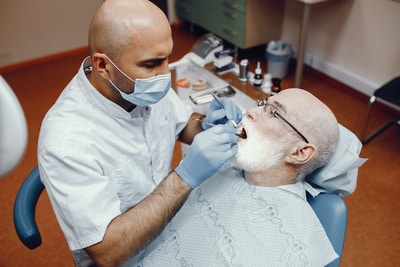
According to the Australian Dental Association, oral cancer is one of the least understood conditions amongst the general public and yet, each day at least three Australians are being diagnosed with it. Dr Peter Alldritt, Chair of the ADA’s Oral Health Committee, says: “[Oral cancer] is an insidious, aggressive disease with a survival rate of only 50% over five years. Oral cancer often goes undetected until it is at an advanced stage.” The signs and symptoms of oral cancer include:
- A sore, irritation, lump or thick patch in the mouth, lip, or throat
- A chronic ulcer or blood blister in the mouth that does not heal
- Difficulty chewing or swallowing
- Difficulty moving the jaw or tongue
- Prolonged swollen glands
- A sore throat that does not go away
- Difficulty speaking or a change in the voice
- Numbness in the tongue or other areas of the mouth
- Swelling of the jaw that causes dentures to fit poorly or become uncomfortable.
Oral cancer can affect anyone from young adults right through to the elderly. It can occur on the lips, tongue, cheeks, floor of the mouth, gums, back of the throat or in salivary glands. Oral cancer is caused by a variety of lifestyle risks, many of which are a part of the lives of the majority of Australians. “Smoking, alcohol, poor diet, excess sun exposure and poor oral hygiene all increase a person’s risk of developing oral cancer,” says Dr Alldritt. “However, simple changes to one’s lifestyle will make a big difference to reducing your risk.” The ADA advises Australians:
- Limit alcohol intake
- Quit smoking
- Avoid prolonged sun exposure and wear lipbalm with SPF sun protection
- Eat fresh fruits and vegetables every day
- Maintain good oral hygiene
How your dentist can help
Dentists are specially trained to do a comprehensive examination of the neck and mouth to detect any abnormalities. Visit your dentist for regularly check ups as early detection can reduce the impact of the cancer. Call one of our friendly reception staff to make an appointment.
